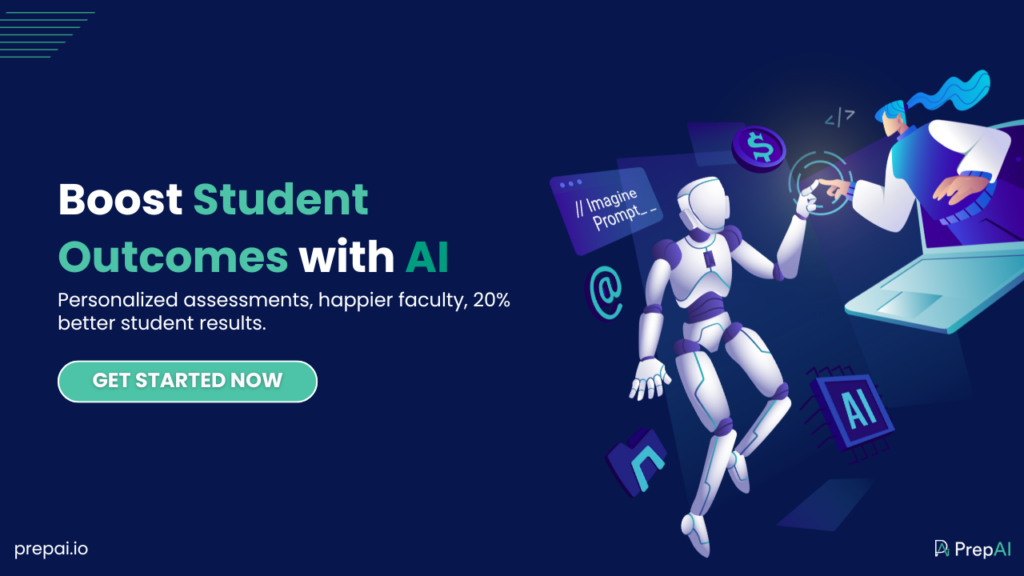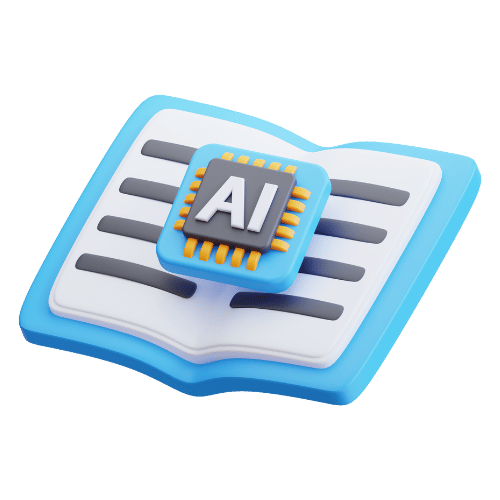Personalized learning refers to the educational approach that customizes the learning experience of the students. It offers real-time feedback and adaptive learning pathways and trains educators to make students engaged in classes. Let’s understand more about personalized learning and boost students' results to 2X.
The use of AI for learning improvement is increasing because, unlike traditional models, it uses the same old curriculum for all types of learners. AI systems can monitor student performance in real time by adapting responses based on student interaction. Student learning retention and performance improve when using adaptive learning platforms (with some institutions reporting a 30% improvement). Adaptive learning platforms like PrepAI give students the right type of support they need personally that motivates them to study.
The potential of AI is to revolutionize education because it makes it more flexible and effective. Around 65% of educators are using AI-powered tools to focus on the students’ improvement in order to enhance learning outcomes. This number is constantly growing across educational contexts, even in underdeveloped areas, with 15-22% better performance on standardized assessments compared to traditional classrooms in South Africa.
AI at its core can help in tailoring educational experiences to accommodate individuals’ unique learning needs, different learning styles, and learning speeds. The use of Artificial Intelligence (AI) within higher education is changing both teaching and learning, along with administration and the creation of smart universities. With these AI-enhanced tools, we have improved student engagement and knowledge retention and increased productivity improvements and administrative efficiencies, all while customizing learning and operational experiences.
Transitioning from Standardization to Personalization
Traditionally, education has revolved around the use of common lesson plans with standardized assessments. While this has proven to be effective, this approach can leave gaps in students whose pace is either faster than the rest of the class or certain students who require additional time to gain the knowledge or skills. Personalized learning turns this around, using data and insights to create personalized pathways that can be responsive to students’ learning needs, strengths, and progress.
Tools like PrepAI make this a reality and not just a buzzword—supporting educators in meeting each student’s need with the necessary attention and resources while alleviating the burden on faculty.
How Do AI Tools Drive Personalized Learning for Students?
AI-driven educational tools can help universities enhance educational outcomes by framing lessons that are more adaptive and engaging. AI platforms like PrepAI can create assessments according to each student’s pace and style. This technology has become crucial in today’s diverse universities, where every student needs their own time to learn and adapt to the curriculum. The AI tools can help in:

Create Dynamic and Diverse Assessments
Scalable learning solutions aim to generate a wide spectrum of assessments like MCQs, true/false, short questions, subjective questions, HOTS, and more. Each assessment draft from AI can be tailored according to the student’s current knowledge and skills. These tools adapt to the learning style of the students, so every student can learn according to their capacity. This allows them to gain confidence in their lessons. These dynamic assessments create a setting where assessment is not only about measuring knowledge but also about shaping the educational experience itself. With AI-backed diversity of assessment, students have multiple opportunities to demonstrate understanding in analytical thinking, critical thinking, applied problem solving, and creativity.
Adaptive Learning Path
Traditional syllabi move into a straight line, and if you integrate AI into your current curriculum, it can help educators personalize this journey for students. For example, if there is a student who is struggling with algebra, the question answer generator makes tests for the student in no time. Even these tools can make extra practice exams with simplified explanations, which help students learn and understand the concept in a better way. These tools can also curate resources, videos, or technical assessments using the material educators upload, which can be easily uploaded in formats like audio, video, text, and more. Thus, it ensures true learning continuity, where no student is left behind.
Reduce Faculty Workload
Earlier the personalization increases the workload of the educators because it doubles their work as they have to provide students with versions of test assessments. They have to manually grade them and spend a lot of time designing these assessments for each student. In larger classes, this was effectively impossible, and therefore, many students ended up with the same education style where their learning needs were not truly addressed.
With skill-based assessment tools like PrepAI, this scenario is changing. The AI tools can now automate the heavy-lifting process of personalization, automate the generation of assessment questions, check student responses, provide grading and feedback to students, etc. The system is even able to modify cross-section assessments for different levels of difficulty, learning styles, or gaps of knowledge. Each student has their own learning experience, and with AI these experiences can be designed for different individuals.
Group Assessments
The conventional tests will only deal with the individual student and do not necessarily help determine how students function in collaborative environments. Each student is provided with the same set of questions, which each student works on by themselves, grades by themselves, and assesses by themselves. This format provides some mechanism to follow along in terms of knowledge, but it does not prepare the students for collaborative problem-solving and creativity, which is even more important for current work environments. Question-answering generators like PrepAI fill that need by providing AI-test-powered group practice assessments.
These AI tools go beyond individual assessments because they help in enabling group-based practice tests. These assessments allow students to work together on problems, case studies, or HOTS-type questions. These group practice tests can be customized by difficulty level, subject area, and skills. This ensures that collaborative learning is structured, measurable, and aligned with institutional goals while still saving faculty significant time in preparation and evaluation.
How Does Personalization Impact Students?
Studies show that AI-personalized learning can drive student outcomes up to a 20% improvement, which is driven by:
- Increased engagement from customized content.
- More productive learning, as students do not spend time on information they do not need to learn.
- Faster feedback cycles, meaning less time struggling with learning new concepts.
- Greater motivation from seeing real progress being made.
When students feel supported through the journey of learning, they will not only perform better academically but also build confidence and learning habits that last.

In the end
The benefit of AI goes beyond grades because personalization in education helps in nurturing critical thinking, problem-solving, and adaptability. The integration of AI tools like PrepAI will help students improve their outcome and empower faculty to position themselves as innovative-driven leaders in education. With AI tools you not only draft and edit the assessments, but you can also use them for a variety of purposes like drafting personalized assessments, quizzes, and smarter teaching.
That’s why we invite university leaders, deans, and academic heads to host a PrepAI Workshop on your campus. In this hands-on session, your faculty will experience how AI can generate dynamic assessments, design adaptive learning paths, and reduce burnout while improving student engagement.
Book a PrepAI Workshop today and discover how your institution can deliver 20% better student outcomes at scale, without faculty overload.



